MercoPress. South Atlantic News Agency
Tag: Nicolas Maduro
-
Saturday, February 9th 2019 - 09:15 UTC
Maduro's protection in the hands of the Cuban security and intelligence services
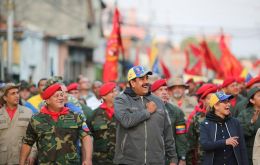
Venezuela's Nicolas Maduro is increasingly leaning on the protection and support of his Cuban backers, amid mounting global pressures to leave office, according to several senior U.S. officials. Adm. Craig Faller, head of U.S. Southern Command, told U.S. senators on Thursday that Havana “owns the security around Maduro and is deeply entrenched in the intelligence service.”
-
Friday, February 8th 2019 - 11:41 UTC
International Contact Group on Venezuela calls for fresh, transparent presidential elections
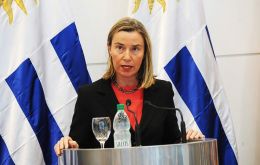
The European Union and a group of Latin American governments that have kept a moderate line on Venezuela called on Thursday for democratic and fresh elections, during a meeting held in Montevideo. The EU-backed International Contact Group on Venezuela said overly forceful intervention could aggravate the crisis.
-
Friday, February 8th 2019 - 08:43 UTC
Humanitarian aid arrives to Cucuta, a bridge away from Venezuela

Trucks carrying humanitarian aid for crisis-stricken Venezuela arrived in the Colombian border city of Cucuta on Thursday as diplomatically-isolated President Nicolas Maduro appeared set to block its entry amid an escalating political crisis.
-
Thursday, February 7th 2019 - 16:57 UTC
EU calls for free elections in Venezuela at International Contact Group meeting in Montevideo

The High Representative of the European Union (EU) for Foreign Affairs and Security Policy, Federica Mogherini warned on Thursday at the meeting of the International Contact Group in Montevideo, on a beside the president of Uruguay, Tabaré Vázquez, that the group does not seek a “direct negotiation” but a free, transparent and credible Presidential election in Venezuela.
-
Thursday, February 7th 2019 - 11:14 UTC
“Neutral-neutralized” Uruguay hosts international gathering on the Venezuelan situation
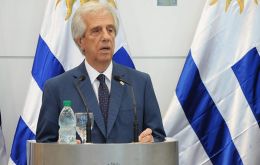
Montevideo, the capital of “neutral/neutralized” Uruguay is hosting this Thursday an international gathering with countries of the Americas and the European Union to address, and attempt to solve or find a way out to the delicate and worsening situation in Venezuela.
-
Thursday, February 7th 2019 - 10:11 UTC
Guaido insists with humanitarian aid for Venezuela, but the Army blocks access
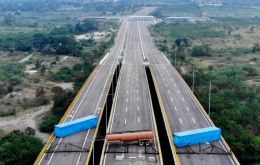
Venezuela’s opposition leader Juan Guaido stepped up efforts on Wednesday to win recognition from EU holdout states and insisted the armed forces allow desperately needed humanitarian aid to enter the country.
-
Wednesday, February 6th 2019 - 09:53 UTC
Trump announces meeting with Kim, calls for unity and blasts “ridiculous partisan investigations”
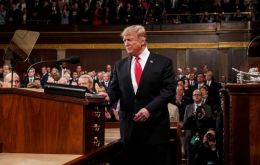
United States President Donald Trump has announced in his State of the Union speech that he will hold a second nuclear summit with North Korea's leader this month. In an address to the nation with the theme “Choosing Greatness”, he vowed once again to build a border wall.
-
Wednesday, February 6th 2019 - 09:22 UTC
“Neutral” Uruguay's name mentioned in attempts to drain Venezuelan coffers

A bank in Portugal has blocked Venezuela’s attempt to transfer US$ 1.2 billion to Uruguay, a lawmaker said on Tuesday as the opposition to President Nicolas Maduro warned of the theft of public funds, while the United States sent food and medical aid to the Venezuelan-Colombian border.
-
Wednesday, February 6th 2019 - 08:58 UTC
US humanitarian aid stationed at the Colombia/Venezuela border
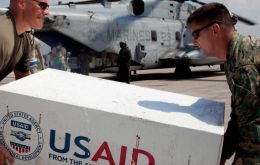
Trucks carrying food and medical supplies sent by the United States to be stockpiled until it can be brought into Venezuela will arrive later this week at Guaido’s request and will be prepositioned at the main Colombian-Venezuelan border crossing at Cucuta, U.S. sources revealed
-
Tuesday, February 5th 2019 - 09:07 UTC
European allies bend to join 'gringo empire' approach

The decision to promote Juan Guaidó as a rival president to Nicolás Maduro in Venezuela was clearly made in Washington, not in Caracas. The speed with which U.S. allies in the Americas and western Europe recognised Guaidó’s claim on Jan. 23 to be the legitimate president of Venezuela would not have been possible without a lot of prior coordination — and a lot of pressure by the Trump administration.
